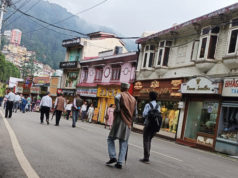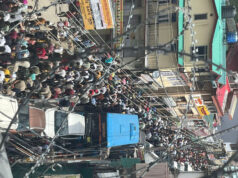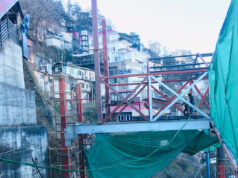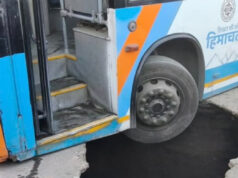The Municipal Corporation of Shimla has declared Lower Bazaar a no-vending zone, aiming to address severe congestion and encroachment issues in the busy market area. Bhuwan Sharma, Joint Commissioner of the Municipal Corporation, stated that the decision was taken by the Town Vending Committee (TVC) to prevent potential disasters, such as fires or medical emergencies, in the overcrowded lanes of the bazaar. The move aligns with the town vending policy, which mandates keeping roads clear for safety and accessibility.
To support vendors affected by the new regulations, the TVC has planned to relocate them to designated vending zones near the market. These zones, marked with blue lines, are being finalized and will be exclusively allocated to registered vendors. The marking process is nearing completion and is expected to be finished shortly. Previously, certain parts of Lower Bazaar were classified as vending zones, but this designation has now been revoked, and the blue lines in the area will be removed.
Despite these measures, encroachment by shopkeepers and illegal vendors remains a persistent problem. Shopkeepers often extend their displays onto public pathways, reducing space for pedestrians and increasing congestion. Illegal vendors set up stalls in non-vending zones, further complicating the situation. These activities have not only disrupted pedestrian movement but also raised serious safety concerns, particularly in emergencies where narrow, obstructed lanes could delay rescue operations.
To enhance disaster preparedness in the area, the Municipal Corporation has introduced daily mock drills in Lower Bazaar. These drills are designed to improve emergency response times and ensure better coordination among rescue teams in case of a crisis.
The civic body is also drafting a comprehensive street vendors policy to regulate vending activities across Shimla. Under this policy, vending will be allowed only in designated zones, and those found selling goods in no-vending zones will face hefty fines. The policy aims to balance the needs of street vendors with public safety and accessibility in high-density areas like Lower Bazaar.
Encroachment issues in Lower Bazaar reflect broader challenges in urban management. Research indicates that such problems often arise due to insufficient enforcement of municipal regulations and a lack of alternative livelihood opportunities for vendors. Experts emphasize that effective urban planning must strike a balance between regulating public spaces and supporting the livelihoods of street vendors.
The measures taken by the Municipal Corporation mark a significant step toward resolving these challenges. However, sustained enforcement, public cooperation, and inclusive policies will be essential to ensure that Lower Bazaar remains a safe and accessible space for residents, businesses, and visitors alike.














